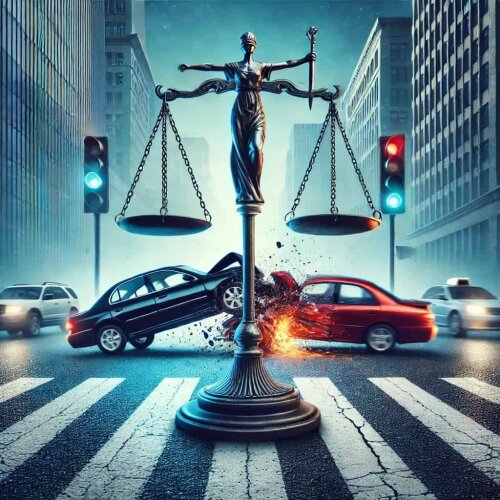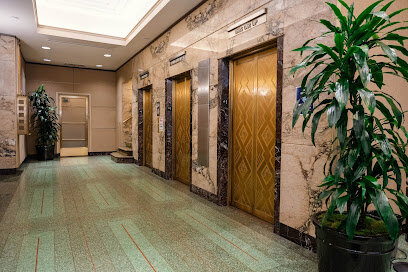Best Premises Liability Lawyers in Portland
Share your needs with us, get contacted by law firms.
Free. Takes 2 min.
List of the best lawyers in Portland, United States
About Premises Liability Law in Portland, United States
Premises liability covers legal claims that arise when someone is injured on another person or entitys property. In Portland, premises liability claims are generally based on negligence. To succeed, an injured person normally must show that the property owner or occupier owed a duty of care, failed to meet that duty, and that failure caused the injury and resulting damages. Common settings include stores, apartment buildings, sidewalks, restaurants, parking lots and private homes.
Local courts apply Oregon law and local codes to determine duties and responsibilities. Municipal regulations, landlord-tenant rules and specific statutes can change who is responsible and what procedures apply. Because standards and deadlines can be strict, it is important to understand both the general negligence principles and any local variations that matter for claims in Portland.
Why You May Need a Lawyer
Many premises liability situations benefit from legal help. A lawyer can evaluate whether you have a viable claim, identify responsible parties, and preserve evidence. Common situations where people seek an attorney include:
- Slip-and-fall incidents on store floors, sidewalks or stairways where poor maintenance, spills or inadequate lighting appear to be the cause.
- Injuries caused by dangerous property conditions such as broken handrails, uneven pavement, potholes or loose tiles.
- Assaults or injuries on commercial premises where the owner or manager may have failed to provide reasonable security.
- Accidents in rental housing caused by code violations, lack of repairs or unsafe building conditions.
- Injuries on city or county property or involving public entities, which often require special notice procedures and shorter deadlines.
Attorneys handle insurance negotiations, calculate full damages including current and future medical costs and lost wages, and advise whether settlement or litigation is appropriate. They also protect your rights if the property owner or their insurer argues you were at fault.
Local Laws Overview
Several local and state rules are especially relevant to premises liability claims in Portland:
- Duty of Care and Visitor Status: Under Oregon common-law negligence principles, duties often depend on the status of the visitor - invitee, licensee, or trespasser. Property owners generally owe the highest duty to invitees such as customers, which includes reasonable inspection and repair or warning of hidden hazards. Duties to social guests and trespassers differ and may be more limited.
- Landlord-Tenant Rules: Oregon and Portland housing rules impose maintenance and habitability obligations on landlords. If a landlord fails to maintain safe conditions required by statute or local code, that failure can support a premises liability claim or related statutory remedies.
- Statute of Limitations: For most personal injury claims in Oregon, including premises liability, the general statute of limitations is two years from the date of injury. Missing this deadline can bar a claim, so prompt action is essential.
- Claims Against Public Entities: If the responsible party is a public body, such as the City of Portland or Multnomah County, special notice rules and shorter deadlines usually apply. In many cases you must present a written claim to the public body within a limited time frame - often within months of the injury - before filing a lawsuit. These procedures are strictly enforced.
- Municipal Codes and Sidewalk Responsibility: Portland has municipal requirements and local code provisions that affect maintenance obligations for certain property-related features, such as sidewalks and lighting. Responsibility for sidewalks and some public-adjacent areas can fall on property owners, tenants or the city depending on the situation and local ordinances.
- Immunities and Defenses: There are statutory and common-law defenses property owners can use. Examples include the open-and-obvious danger defense, recreational-use immunities for landowners in some situations, and limitations if the injured person was trespassing. The availability of these defenses depends on facts and applicable law.
Frequently Asked Questions
What must I prove to succeed in a premises liability claim?
You generally must prove four elements: duty - that the property owner or occupier owed you a legal duty of care; breach - that they failed to exercise reasonable care; causation - that the breach caused your injury; and damages - that you suffered actual losses such as medical bills, lost income or pain and suffering. Evidence like photos, witness statements, maintenance records and medical records can help establish these elements.
How long do I have to file a premises liability lawsuit in Portland?
For most personal injury claims in Oregon, the statute of limitations is two years from the date of injury. Claims against public bodies often require shorter notice periods and special procedures - for example, you may need to present a written claim to the public entity within a few months. Missing deadlines can prevent you from pursuing a claim, so check the deadlines promptly and consult an attorney.
Can I be partly at fault and still recover damages?
Yes. In Oregon, an injured persons recovery is typically reduced by their share of fault. That means if you are partly responsible for the incident, any award or settlement is adjusted downward by your percentage of fault. The exact impact depends on the facts of the case and how fault is allocated, so a lawyer can explain how these rules apply to your situation.
What types of compensation can I recover?
Possible damages include past and future medical expenses, lost wages and lost earning capacity, property damage, and non-economic damages like pain and suffering and loss of enjoyment of life. In limited circumstances, punitive damages may be available if the defendant acted with malice or reckless indifference, but those awards are rare and fact-specific.
Should I talk to the propertys insurance company?
You should be cautious. It is important to seek medical care and document your injuries, but giving a recorded statement or agreeing to a quick settlement before speaking with an attorney can harm your claim. Insurance companies often try to minimize payouts. Consulting a lawyer before providing detailed statements or signing releases is prudent.
What immediate steps should I take after an injury on someone elses property?
Prioritize your health - get medical attention. Document the scene with photos and videos, record witness names and contact information, preserve clothing or other physical evidence, make a written account of what happened while details are fresh, and report the incident to the property owner or manager and request an incident report. Keep copies of all medical bills and records.
Can I sue the city or a public agency if I was hurt on a public sidewalk or in a park?
Possibly, but suing a public agency often requires following strict notice and claim-presentment rules. You may need to submit a written claim to the agency within a short time window and comply with other procedural requirements before filing a lawsuit. Because the rules are technical and time-sensitive, consult an attorney promptly if a public entity may be liable.
How long will it take to resolve a premises liability case?
Timelines vary. Some cases settle in a few months through negotiation; others require years if litigation and trial are necessary. Factors that affect duration include the severity of injuries, complexity of liability issues, willingness of parties to negotiate, and court scheduling. An attorney can give a more specific estimate after reviewing your case.
Do I need a lawyer for small injuries or minor property damage?
Not always, but even small cases can involve insurance tactics and legal pitfalls. For minor claims, you may be able to handle communications and settlements yourself. If there is dispute over fault, significant medical expenses, or the insurance company offers a low settlement, a consultation with a lawyer can help you understand your options. Many personal injury lawyers offer free initial consultations.
How do attorneys charge for premises liability cases?
Many personal injury attorneys work on a contingency-fee basis - they are paid a percentage of the recovery only if you win or settle. This arrangement allows people to pursue claims without upfront legal fees. Contingency percentages and fee arrangements vary, so ask about fees, costs and how out-of-pocket expenses will be handled during any initial consultation.
Additional Resources
Helpful local and state organizations and resources include:
- Oregon State Bar - for lawyer referral services and resources about hiring an attorney.
- Oregon Trial Lawyers Association - educational resources and lists of members experienced in personal injury law.
- Legal Aid Services of Oregon and local legal clinics - for low-income residents seeking guidance about rights and options.
- Multnomah County Circuit Court and the Oregon Judicial Department - for court procedures and filing information.
- Portland Bureau of Transportation and Portland Code Enforcement - for information about local maintenance responsibilities and reporting hazardous conditions.
- Portland Police Bureau - for incident and accident reports when a police response occurred.
- Your health care providers and medical billing offices - to obtain full records and billing statements useful for a claim.
Next Steps
If you were injured on someone elses property in Portland, consider these practical next steps:
1. Seek medical attention immediately and follow medical advice. Your health is the top priority and medical records are key evidence.
2. Preserve evidence. Take photographs of the hazard and the scene, keep clothing and damaged items, and write down what happened while memories are fresh.
3. Report the incident. Notify the property owner, manager or responsible public agency and request an incident report or documentation.
4. Gather contact information. Get names and contact details for witnesses, employees on site and any responding officers.
5. Note deadlines. Be aware of the statute of limitations and any special notice requirements for public entities. These deadlines can be short and missing them can end your claim.
6. Consult an experienced premises liability attorney for a free or low-cost initial evaluation. Bring photos, medical records, incident reports and any correspondence with insurers. An attorney can explain your likely compensation, the strengths and weaknesses of your claim, and whether to negotiate or litigate.
7. Be cautious with insurers. Do not sign releases or give recorded statements without understanding the legal effect. If you hire an attorney, they can handle communications with insurers and protect your interests.
This guide is for informational purposes and does not constitute legal advice. For advice about your specific situation, consult a licensed attorney in Oregon who handles premises liability matters.
Lawzana helps you find the best lawyers and law firms in Portland through a curated and pre-screened list of qualified legal professionals. Our platform offers rankings and detailed profiles of attorneys and law firms, allowing you to compare based on practice areas, including Premises Liability, experience, and client feedback.
Each profile includes a description of the firm's areas of practice, client reviews, team members and partners, year of establishment, spoken languages, office locations, contact information, social media presence, and any published articles or resources. Most firms on our platform speak English and are experienced in both local and international legal matters.
Get a quote from top-rated law firms in Portland, United States — quickly, securely, and without unnecessary hassle.
Disclaimer:
The information provided on this page is for general informational purposes only and does not constitute legal advice. While we strive to ensure the accuracy and relevance of the content, legal information may change over time, and interpretations of the law can vary. You should always consult with a qualified legal professional for advice specific to your situation.
We disclaim all liability for actions taken or not taken based on the content of this page. If you believe any information is incorrect or outdated, please contact us, and we will review and update it where appropriate.










